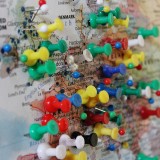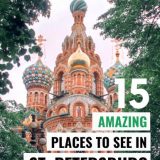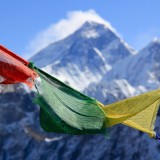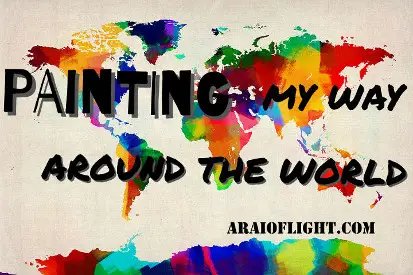100+ Ways To Say FAMILY in Different Languages ❤️ of the World
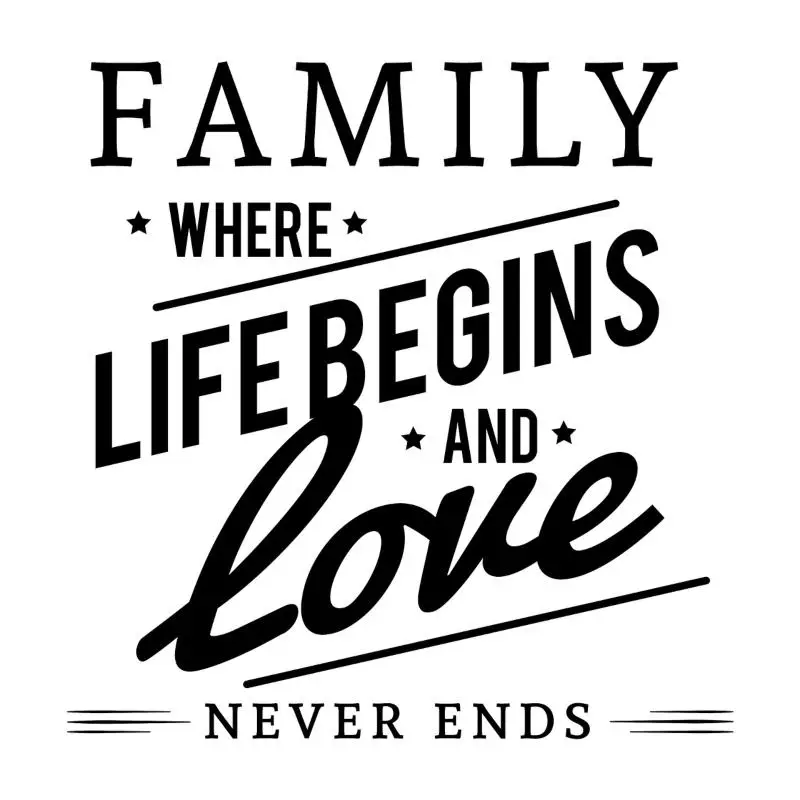
FAMILY! Around the world, this simple word is used as an expression of love, comfort, loyalty, support, trust, respect, kindness, self compassion, and integrity.
Yes, it may appear as a straightforward word, yet it holds so much of meaning for almost everyone. This word is said an infinite number of times each day in a plethora of situations across cultures, traditions, and backgrounds. Every language has a way of expressing the concept of family and since you’re looking for other words for family, you’ve certainly come to the right place!
Continue reading to discover more than 100 ways to say family in different languages of the world.
Family is not an important thing. It’s everything.
The dictionary defines family as a group of one or more parents and their children living together as a basic social unit that are united by the ties of marriage, blood, or adoption…
or all the descendants of a common ancestor.
While the world may seem to be filled with many differences, family is universal. Many of us have family located all over the world, whether we’ve met them in person or not. Why not impress these members of your family by knowing how to greet them in the language of their country. Below you will find out how to say family in any and every country.
Get ready to impress your family, família, sem’ya, parivaar, famiglia, and kazoku around the world.
Do you know:
May 15th is International Day of Families and the ideal opportunity for celebrating our family at home and around the world
The word family is guaranteed to induce feelings of love, closeness and comfort. A simple way of making someone feel loved, acknowledged, and appreciated.
A family member is someone who gets you, who you can talk to about anything, someone you can share your thoughts and problems with. Someone you can have new experiences with, like trying weird foods, or discovering beautiful islands, or simply watching the sun rise together.
There’s no shortage of words for family and ways to call someone family in many languages around the world. The words may be different, but the good intentions and intended joy are one and the same, with abundant feelings no matter which country you may find yourself in. You can learn a lot about a region and its inhabitants from the way the locals express themselves and a benefit of traveling is this experience gained along the way.
It’s always a good idea to know a few words in the language of the country you’re exploring. Start conversations, impress the locals, and make new connections by learning these other words too:
- HELLO in every language of the world
- I LOVE YOU in different languages of the world
- CHEERS in all languages of the world
- GOODBYE in other languages
- THANK YOU in another language
- GOOD MORNING in a different language
- GOOD NIGHT in different languages
- LIGHT in different languages
- BEAUTIFUL in all languages
- FRIEND in different languages
Family around the World
Do you know:
Where does the term FAMILY come from?
The etymological origin of the word family is from the Latin word famulus, “servant,” which comes from Old Latin famul. The word family came into English in the early fifteenth century and described a group of individuals living under one roof that included blood relations and servants, similar to the concept of a household.
Being a family means you are a part of something very wonderful. It means you will love and be loved for the rest of your life.

Continue reading to discover the complete list of family in all languages. Copy and paste, save to your phone, or print out and stick it in your passport. I’ll be continually updating this as I discover other different languages for family.
Be sure to bookmark this post so that it’ll always be on hand for when the moment strikes.
If you wanted to call every person in the world family, you would need to learn those individual words from over 7,000 languages.
Fortunately, just by reading this guide I have put together for you, you will be able to say family in different languages to over 90% of the world’s population. So whether you find yourself in Africa, Europe, Asia, or America, I’ve got you covered fam.
Families are like branches on a tree. We grow in different directions, yet our roots remain as one.
Other Creative and Fun Ways to Say Family
In addition to saying the word family in other languages, here are ten other words for family in English that you could use:
- tribe
- clan
- household
- fam
- blood relatives
- ancestors
- lineage
- kinfolk
- folk
- dynasty
FAMILY IN DIFFERENT LANGUAGES
Calling someone a beloved family member is sure to bring a huge smile to their face.
Here’s your ultimate guide on how to say FAMILY in a different language.
Over 100 ways to acknowledge family in the most spoken languages of the world.
With pronunciation. In brackets you will find how to pronounce the word as it can often be difficult to know how to vocalise the word just by reading or looking at the direct translation.
Are you ready to take a trip around the world and learn how to convey some family vibes?
I have included the word for family in every language I could think of. If you don’t spot your language, let me know (in the comments) and I will be happy to add it to this list.
Scroll to the bottom for a little bonus! ↓↓
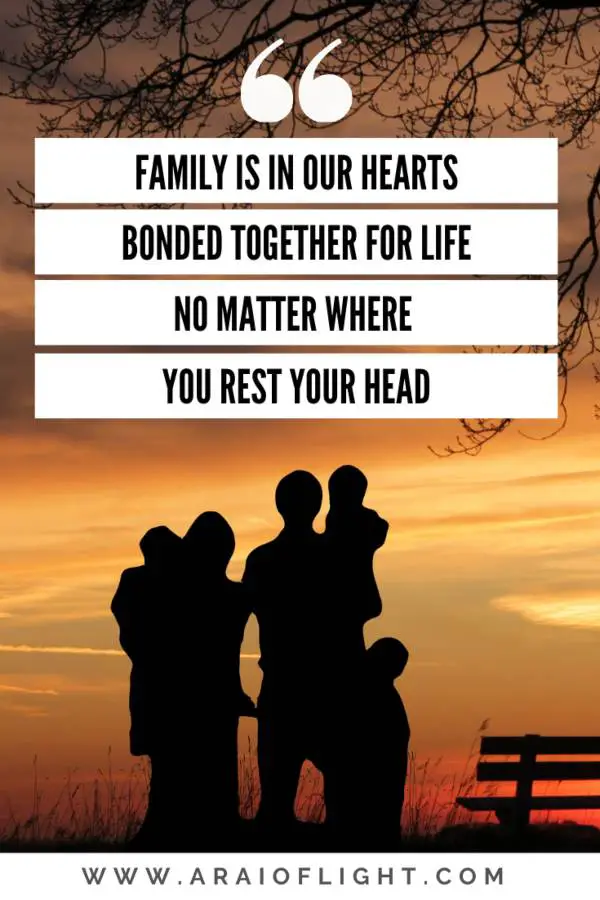
Speaking of family in different languages, describe your great love for traveling with family with these: 50 of the best travel words
How do I say FAMILY in another language? Different languages for family?
Find every language in the world here ↓
Let’s get into it…
Here’s how you say “family” in:
Afrikaans
- gesin
— is the Afrikaans word for family
Afrikaans is a West Germanic language of Southern Africa mostly derived from Dutch. It developed as Dutch settlers and indigenous African mixed languages beginning in the 17th century. Today, an estimated 15 to 23 million people call Afrikaans their mother tongue. It is mainly spoken in South Africa and Namibia and can also be heard in parts of Botswana and Zimbabwe.
Albanian
- familje
— is the Albanian word for family
Albanian is an Indo-European language, spoken mainly in Albania and Kosovo, though it is also spoken in other areas of the Balkans. With about 7.5 million speakers, it comprises an independent branch within the Indo-European languages and is not closely related to any other language in Europe.
Alsatian
- familie
— is the Alsatian word for family
Alsatian is a West Germanic language spoken by around 900,000 people, mainly in the Alsace region of northeastern France.
Amharic
- ቤተሰብ
— is the Amharic word for family
Amharic is a Semitic language and the official language of Ethiopia. It can also be heard in Egypt and Eritrea, as well as in Israel, Sweden, Canada and the United States.
Arabic
- الأسرة al’usra
— the word for family in Arabic, pronounced (us-rah) - عائلة ae’lah
Arabic (العربية) is a Semitic language spoken by over 420 million people as their first language in countries in Africa, the Arabian Peninsula, and other parts of the Middle East. Many more people can also understand it as a second language. Modern Standard Arabic is the liturgical language for 1.6 billion Muslims and is the official written form of the language with the Arabic alphabet, which is written from right to left.
Aragonese
- familha
Aragonese is a language in the Romance language family that is native to Spain and spoken by just over 10, 000 people in the Pyrenees valley of Aragon.
Armenian
- ընտանիք
— family in Armenian
Armenian is an Indo-European language spoken in the Republic of Armenia, as well as in large communities of Armenian diaspora by around 6.7 million people.
Assamese
- পৰিয়াল Parijan
— family in Assamese - আত্মীয় Atmiy
- ঘৰ Ghar
Assamese is an Indo-Aryan language spoken in the northeast Indian state of Assam, where it is an official language. Native to India and Bangladesh, it is spoken by over 23 million people.
Asturian
- familia
— family in Asturian
Asturian is a West Iberian Romance language spoken by around 400,000 people in Asturias, Spain.
Azerbaijani
- ailə
— means family in Azerbaijani
Azerbaijani or Azeri is the primary and official language of Azerbaijan by its 8.8 million native speakers. It is also widely spoken in Northern Iran and to a small extent in southern Dagestan, the Kvemo Kartli region of Georgia, eastern Turkey, in Shia cities of Iraq, like Karbala and Kirkuk. The language is a Turkic language and is highly intelligible with modern-day Turkish.
Basque
- familia
— is the Basque word that translates to family
Basque (euskara) is a language spoken in the Basque Country (Gipuzkoa, Araba, Bizkaia) and Navarra (in Spain) as well as in the French Basque Country (Labourd, Soule and Basse-Navarre). Linguistically, Basque is a language isolate and is unrelated to the other languages of Europe.
Bavarian / Austrian German
- to say family in Bavarian use:
Familie
Bavarian is a regional dialect of German spoken in the German state of Bavaria, western Austria, and Northeastern Italy by over 14 million people. It uses German grammar, but takes several root words from Latin.
Belarusian
- сям’я
— is the Belarusian word for family
Belarusian is the official language of Belarus. This East Slavic language is also spoken in Russia, Ukraine and Poland.
Bengali
- পরিবার poribaar
— The Bengali word for family
Bengali বাংলা is the only official language of Bangladesh, one of the 22 official languages of India, and the sixth most spoken language in the world. It is spoken as a first language by the majority of the population in Bangladesh, as well as people in the Indian state of West Bengal.
Bosnian
- porodica
— is the Bosnian word for family
Bosnian, a south Slavic language of the Indo-European family, is the official language of Bosnia and is essentially the same language as Croatian and Serbian. All three languages used to be known as Serbo-Croatian before the break-up of Yugoslavia.
Brazilian Portuguese
- família
— is the word for family in Brazilian Portuguese
Brazilian Portuguese (Português do Brasil) is the variety of Portuguese dialect spoken in Brazil. It is spoken by virtually all of the 200 million inhabitants of Brazil and spoken widely across the Brazilian diaspora. European Portuguese differs from the Brazilian variety in pronunciation, as well as in some vocabulary.
Breton
- tiegezh
— is the word for family in Breton
Breton is a Southwestern Brittonic language of the Celtic language spoken in Brittany in the northwest of France.
Bulgarian
- семейство
— is the Bulgarian word for family
Bulgarian is a South Slavic language spoken in Southeastern Europe, primarily in Bulgaria. It is the country’s only official language and Bulgarian is written with Cyrillic.
Burmese
- မိသားစု misarrhcu
— family in Burmese, pronounded (mee-sahr-su)
Burmese is a Sino-Tibetan language spoken in Myanmar where it is an official language and the language of the Bamar people, the country’s principal ethnic group.
Cambodian Khmer
- គ្រួសារ kruosaear
— means family in Khmer, pronounced (crue-sayr)
Khmer is the language of the Khmer people and the official language of Cambodia. With over 16 million speakers, it is the second most widely spoken Austroasiatic language.
Catalan
- família
— is the word for family in Catalan
Catalan is a Western Romance language derived from Vulgar Latin and named after the medieval Principality of Catalonia, in northeastern of modern Spain. It is the only official language of Andorra, and a co-official language of the Spanish autonomous communities of Catalonia, the
Balearic Spanish Islands, and Valencia.
Cebuano
- pamilya
Cebuano, also known as Bisaya or Binisaya, is an Austronesian language spoken in the southern Philippines region in Central Visayas, western parts of Eastern Visayas and the majority of Mindanao.
Chamorro
- familia
Chamorro is an Austronesian language, the native and spoken language of the Chamorro people, who are the indigenous people of the Mariana Islands.
Chichewa
- banja
Chichewa, also known as Nyanja, is a Bantu language spoken in much of Southern, Southeast and East Africa. It is the national language of Malawi and is also spoken in Zambia, Mozambique and Zimbabwe.
Chinese Cantonese
How to say family in Chinese Cantonese:
- 家庭 (gàtìhng)
— the Chinese word for family
Cantonese is a variety of Chinese originating from the city of Guangzhou and its surrounding area in Southeastern China. Belonging to the Sino-Tibetan family of languages, it is the traditional prestige variety of the Yue Chinese dialect group, which has about 68 million native speakers.
Chinese Mandarin
How do you say family in Chinese Mandarin:
- 家 (jiā)
— the word for family in Chinese Mandarin language - 家庭 (Jiātíng)
— pronounced (jya-ting)
Mandarin Chinese is the official language of Mainland China and Taiwan, and is one of the official languages of Singapore. Mandarin is often placed first in lists of languages by number of native speakers with almost a billion speakers.
Corsican
- famiglia
Corsican is a Romance language from the Italo-Dalmatian family that is spoken predominantly on the Mediterranean island of Corsica. Corsican is closely related to Tuscan and to the Florentine-based Italian.

Croatian
- obitelj
— is the Croatian word for family, pronounced (oh-bee-teylj)
Croatian or Hrvatski is a South Slavic language spoken mainly in Croatia, Bosnia and Herzegovina, some parts of Serbia, and the neighbouring countries by about 5.5 million people.
Czech
- rodina
— the word for family in Czech, pronounced (ro-deena)
Czech is a Western Slavic language which is mutually intelligible with Slovak. It is mainly spoken in the Czech Republic with over 10,5 million speakers.
Danish
- familie
— is the word for family in Danish, pronounced (fahm-ee-leah)
Danish is a Scandinavian language and the only official language of the Kingdom of Denmark. Closely related to Swedish and Norwegian, it is spoken in Denmark and in some parts of Greenland and northern Germany.
Dhivehi
- ‘aailaa
— is the word for family in Dhivehi
Dhivehi or Maldivian is an Indo-Aryan language spoken on the islands of Maldives where it is an official language.
Dogri
- परिवार
Dogri is a Northern Indo-Aryan language spoken by around five million people in India, mainly in the Jammu region of Jammu and Kashmir.
Dutch
- familie
— the Dutch word meaning family, pronounced (fahm-ee-lee)
Dutch is a West Germanic language spoken by about 27 million people world-wide mostly in the Netherlands and northern Belgium.
Dzongkha
- ནང་ཚན nang tsen
- བཟའ་ཚང༌ za tsang
Dzongkha or Bhutanese is the sole official and national language of the Kingdom of Bhutan. This Sino-Tibetan language is spoken by over half a million people in Bhutan and is written with the Tibetan alphabet.
English
- Family
English is a West Germanic language that was first spoken in Anglo-Saxon England in the early Middle Ages. It is spoken in many countries around the world with over 375 million native speakers. English is the second most spoken language, and the most international language in the world.
Estonian
- perekond
— is the Estonian word for family, pronounced (pear-eh-cond)
Estonian is a Finno-Ugric language spoken as the official language in Estonia. It is closely related to Finnish.
Faroese
- húsfólk
— is the word for family in Faroese - hýski
Faroese is a North Germanic language spoken as a first language by Faroe Islanders, residing on the Faroe Islands and in other areas, mainly Denmark.
Farsi / Persian
- خانواده Khanevadeh
— the Persian word meaning family - فامیل Famil
— this is the word in Persian referring to your relatives
Persian is an ancient language belonging to the Iranian branch of the Indo-Iranian subdivision of the Indo-European languages. It is a pluricentric language predominantly spoken and used officially within Iran, Afghanistan, and Tajikistan.
Fijian
- Vuvale
— this is the Fijian word for family
Fijian is an Austronesian language of the Malayo-Polynesian family. It is an official language of Fiji spoken by some 350,000–450,000 ethnic Fijians as a native language.
Finnish
- perhe
— is the Finnish word for family, pronounced (pehr-heh)
Finnish is a Finno-Ugric language spoken only in Finland as the official language and by ethnic Finns elsewhere in Scandinavia.
Flemish
- familie
— is the Flemish word for family - stam
Flemish is a Low Franconian dialect cluster of the Dutch language, native to the historical region of Flanders in northern Belgium. It is sometimes referred to as Flemish Dutch, Belgian Dutch, or Southern Dutch spoken by over 6 million people.
French
- la famille
— is the French word for family, pronounced (fam-eel)
French is a Romance language of the Indo-European family spoken by over 354 million people in France and around the world. It is the third most spoken language in Europe, the official language of 29 countries, spoken in parts of Africa, North America, and South America.
Frisian
- famylje
The Frisian languages are a closely related group of Germanic languages, spoken by about 500,000 Frisian people, who live on the southern fringes of the North Sea in the Netherlands and Germany.
Galician
- familia
Galician is a Romance language spoken by around 2.4 million people in Galicia, a region in northwestern Spain, where it is the official language.
Georgian
- ოჯახი
— family in Georgian
Georgian is the official language of Georgia and the country’s most widely spoken language with over 4.1 million people.
German
- familie
— the German noun that translates to family, pronounced (fa-meel-ye)
German Deutsch is the official language of both Germany and Austria and one of the three official languages of Switzerland. German belongs to the West Germanic group of the Indo-European language family. One of the major languages of the world, German is a native language to almost 100 million people worldwide and the most widely spoken native language in the European Union.
Gilbertese
- utuu
Gilbertese, also called Kiribati, is an Austronesian Oceanic language spoken mainly in Kiribati, but also on the islands of Fiji, the Solomon Islands and Tuvalu.
Greek
- οικογένεια oikogéneia
— word for family in Greek. You pronounce this as (ay-ko-ye-nee-ya)
Greek (ελληνικά) belongs to the Hellenic branch of the Indo-European language family, mainly spoken in Greece, the Greek islands, and Cyprus as an official language. It has the longest documented history of any living Indo-European language, spanning more than 3000 years of written records. There are about 13.1 million speakers of Greek worldwide and it is recognised as a minority language in Albania, Armenia, Hungary, Italy, Romania, Turkey, and Ukraine.
Greenlandic
- familie
— is the Greenlandic word for family
Greenlandic falls under the Eskimo–Aleut language family, spoken by around 57,000 Greenlandic Inuit people in Greenland.
Gujarati
- કુટુંબ Kuṭumba
— is the Gujarati word for family
Gujarati is an Indo-Aryan language native to the Indian state of Gujarat and spoken predominantly by the Gujarati people. Gujarati is part of the greater Indo-European language family.
Haitian Creole
Say family in Creole:
- fanmi
Haitian Creole (kreyòl ayisyen)) is a French-based creole language spoken by 10–12 million people worldwide and the only language of most Haitians. Along with French it is one of the official languages of Haiti.
Hausa
- dangi
— family in Hausa - iyali
Hausa language, the most important indigenous bridge language in West and Central Africa, spoken as a first or second language by about 40–50 million people. It belongs to the Western branch of the Chadic language family within the Afro-Asiatic language phylum. It is spoken mainly in northern Nigeria and Niger, and also in Benin, Burkina Faso, Cameroon, the Central African Republic (CAR), Chad, Congo, Eritrea, Germany, Ghana, Sudan, and Togo.
Hawaiian
How to say family in Hawaiian:
- ohana
— this is the word for family in Hawaiian, pronounced (o-hahn-ah)
The Hawaiian language is a Polynesian language that takes its name from Hawaiʻi, the largest island in the tropical North Pacific archipelago where it developed. Hawaiian, along with English, is an official language of the State of Hawaii and here are the best words about Hawaii to know.
Hebrew
- מִשׁפָּחָה mishpahhah
— is the Hebrew word for family, pronounced (mish-pach-ah)
Hebrew is a Northwest Semitic language spoken by over nine million people worldwide. Historically, it is regarded as the language of the Israelites and their ancestors. It is written using its own script from right to left.
Hindi
- परिवार parivaar
— is the Hindi word for family, pronounced (pahr-ee-vahr) - Gharana
Hindi (हिन्दी) is an Indo-European language spoken in India, Nepal, and throughout the Indian diaspora. Hindi is descended from Sanskrit, sometimes called “the mother of all languages.” While there are 22 official languages and over 1,000 dialects of India, Hindi and English take precedence in government affairs. It is a link-language for over half of India’s population.
Hmong
- tsev neeg
— pronounced (tsay-neng)
Hmong is a Hmong-Mien language spoken by about 2.6 million people in China, Vietnam, Laos, Thailand, USA, and French Guiana.
Hungarian
- család
— this is the word for family in Hungarian, pronounced (shah-lahd)
Hungarian is a Uralic language of the Ugric branch spoken in Hungary and parts of several neighbouring countries. It is the official language of Hungary and one of the 24 official languages of the European Union.
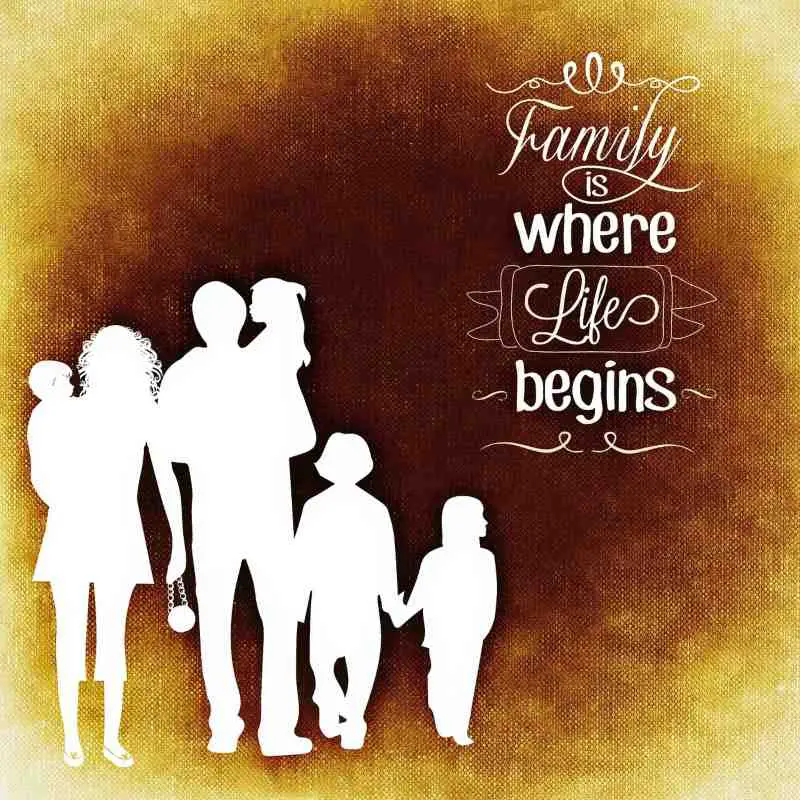
Icelandic
- fjölskylda
— is the Icelandic word for family, pronounced (fee-old-skill-dah)
Icelandic (íslenska) is a North Germanic language spoken in Iceland as its official language. It’s most closely related to Faroese and Western Norwegian and has around 314,000 speakers. The language is more conservative than most other Western European languages.
Igbo
- ezinụlọ
— the word for family in Igbo, pronounced (ay-zee-no-low)
Igbo is the principal native language of the Igbo people of southeastern Nigeria with around 45 million speakers and over 20 dialects.
Indonesian Bahasa
- keluarga
— the Indonesian noun for family, pronounced (kel-uare-gah)
Indonesian (bahasa Indonesia) is the official language of Indonesia.With over 230 million speakers, it is one of the most widely spoken languages in the world. It is a group of varieties of Malay, an Austronesian language that has been used as the common language in the multilingual Indonesian archipelago for centuries. Indonesia uses the Latin alphabet system and Arabic numerals.
Inuktitut
- ila
— is the word for family in Inuktitut
Inuktitut is an Eskimo-Aleut language spoken in Arctic territories and the topmost span of North America including Alaska and Northern Canada.
Irish
- teaghlach
— this is the all-purpose word for family in Irish, pronounced (chye-lukh)
Irish (Gaeilge) is one of the three Goidelic languages, along with Scottish Gaelic and Manx. This Goidelic branch together with the Brythonic branch (Welsh, Cornish and Breton) form the Celtic language family.
Italian
How to say family in Italian:
- famiglia
— is the Italian word for family, pronounced (fa-meeg-lee-ya)
Italian (Italiano) is a Romance language of the Indo-European language family spoken by over 90 million people, the vast majority of which are in Italy, and the Italian islands of Sicily and Sardinia. It is the official language of Italy, San Marino, and the Vatican City.
Japanese
- 家族 Kazoku かぞく
— the word for family in Japanese, pronounced (ka-zo-kuh) - ファミリ
Japanese (日本語 Nihongo) is an East Asian language of the Japonic language family. It is spoken by about 125 million people, mostly in Japan, where it is the official and national language.
Jamaican
- Fambly
— is a Jamaican saying to express family
Jamaican Patois, often also referred to as Jamaican Creole, is an English-based creole language with West African influences spoken mainly in Jamaica. Belonging to the English Creole language family, it is spoken by the the majority of Jamaicans with over 3 million native speakers.
Javanese
- kulawarga
— is the word for family in Javanese, pronounced (kel-u-war-gah)
Javanese is the language of the Javanese people of the island of Java, in Indonesia that is the native language of more than 98 million people.
Kannada
- ಕುಟುಂಬ Kutumba
— is the Kannada word for family
Kannada, spoken by nearly 45 million native speakers, is a Dravidian language of the people of Karnataka in southwestern India, and by significant linguistic minorities in the states of Maharashtra, Andhra Pradesh, Tamil Nadu, Telangana, Kerala and abroad.
Kazakh
- отбасы
— family in Kazakh
Kazakh is a Turkic language of the Kipchak branch spoken in Central Asia and the official language of Kazakhstan. The language comprises 21 million native speakers including regions of Bayan-Ulgii in Mongolia and the Dzungarian region of Xinjiang, China.
Kinyarwanda
- muhira
Kinyarwanda, an official language of Rwanda, is a Bantu language of the Niger-Congo language family that is spoken by at least 10 million people in Rwanda, DR Congo, and Uganda.
Korean
Family in Korean:
- 가족 gajog
— family in Korean, pronounced (gah-joh)
Korean, an East Asian language, is the official language of South Korea (Republic of Korea) and North Korea (Democratic People’s Republic of Korea) spoken by more than 75 million people.
Kurdish
- malbat
Kurdish is spoken by about 30 million Kurds in western Asia including parts of Kurdistan, Iraq, Turkey, Iran, and Syria. It is one of the Indo-Iranian languages, ranks as the third largest Iranian language, after Persian and Pashto.
Kyrgyz
- үй-бүлө üy-bülö
— family in Kyrgyz
Kyrgyz is a member of the Kipchak branch of the Turkic language family spoken by over 4 million speakers mainly in Kyrgyzstan, and also in China, Tajikistan, Afghanistan and Turkey.
Lao
- ຄອບຄົວ khobkhua
— family in Lao
Lao is the main language of Laos. It is a Kra–Dai language serving as a common language among all citizens of Laos, who speak approximately 90 other languages, many of which are unrelated to Lao. Modern Lao is heavily influenced by the Thai language and comprises over 30 million native speakers.
Latin
- familia
— is the Latin word for family, pronounced (fah-meal-yeh)
Latin was the dominant language of the Roman Empire from 6th century BC to 600 AD. When the Roman Empire collapsed, Latin evolved into the various languages that we know today. Italian, French, Portuguese, Spanish, and Romanian all consider Latin as their parent tongue. Latin is a classical language belonging to the Italic branch of the Indo-European languages.
Latvian
- ģimene
— translates as family in Latvian, pronounced (ghi-mehn-eh)
Latvian (latviešu valoda) is an Indo-European Eastern Baltic language spoken in the Baltic region. It is the official language of Latvia and one of the official languages of the European Union.
Lebanese
- عائلة (‘aa’ila)
— is the Lebanese word for family - أسرة (usra)
Lebanese is a variety of North Levantine Arabic, indigenous to and spoken primarily in Lebanon. With significant linguistic influences borrowed from other Middle Eastern and European languages it is spoken by over 5,7 million native speakers.
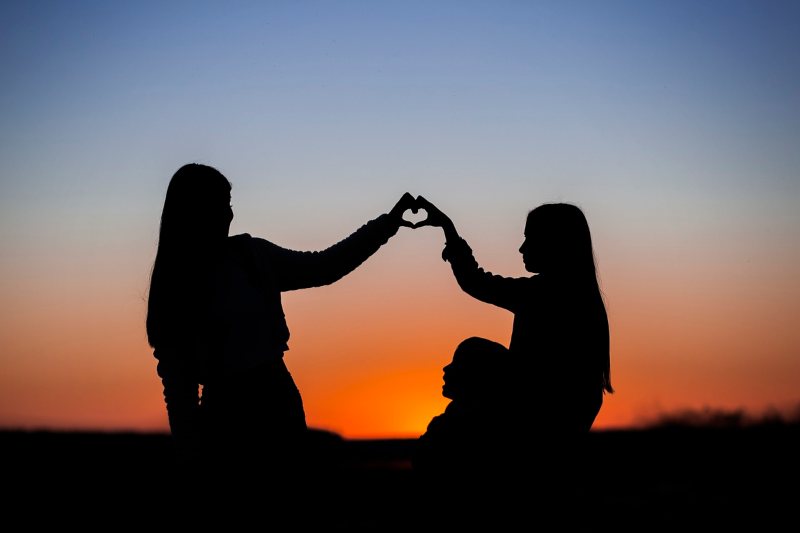
Lingala
- Libota
Lingala is a Bantu language spoken throughout the northwestern part of the Democratic Republic of the Congo and a large part of the Republic of the Congo by over 70 million people.
Lithuanian
- šeima
— is the word for family in Lithuanian - šeimos
Lithuanian (lietuvių kalba) is an Eastern Baltic language spoken in the Baltic region as the official language of Lithuania. It is also one of the official languages of the European Union spoken by just under 3 million native speakers. The language is one of the oldest in the world.
Luxembourgish
- Famill
Luxembourgish is a West Germanic language that is spoken mainly in Luxembourg. About 390,000 people speak Luxembourgish worldwide.
Luganda
- amaka
— family in Luganda
Luganda, a Bantu language, is an official language of Uganda along with English and Swahili. It is spoken primarily in Kampala, but may be understood in much of the country and in the African Great Lakes region.
Macedonian
- семејството semejstvoto
— family in Macedonian
Macedonian, the official language of the Republic of North Macedonia, is a south Slavic language spoken as a first language by 2 million people.
Malagasy
- family
Malagasy is the national language of Madagascar belonging to the Austronesian Malayo-Polynesia family of languages spoken by 25 million people.
Malay
- keluarga
— is the Malay word for family, pronounced (kel-uare-gah)
Malay (Bahasa Melayu) is an Austronesian language spoken as the sole official language of Malaysia and Brunei. It is also heard in Indonesia, Singapore, and Thailand with a total of 250 – 300 million speakers.
Malayalam
- കുടുംബം kuṭumbaṁ
— is the word for family in Malayalam
Malayalam (മലയാളം) belongs to the Dravidian language family, spoken mostly in the Southern Indian states of Kerala and Lakshadweep. Around 36 million people use this language, which is one of the 22 official languages of India.
Maltese
- familja
— is how you say family in Maltese
Maltese, a language of central Semitic origin written in the Latin script, is the national language of Malta. It is spoken by around 420,000 people on the Mediterranean islands of Malta, Gozo and Comino. The Maltese language developed from Sicilian Arabic, Over the centuries, it has incorporated many words derived from English, Italian and French.
Māori
- whanau
— family in Māori, pronounced (whah-now)
Māori is an Eastern Polynesian language spoken by the Māori people, the indigenous population of New Zealand. it has also gained recognition as one of New Zealand’s official languages.
Marathi
- कुटुंब Kuṭumba/gharana
Marathi is an Indo-Aryan language spoken by around 83.1 million Marathi people of Maharashtra, India. It is the official language and co-official language in the Maharashtra and Goa states of Western India, respectively, and is one of the 22 scheduled languages of India.
Marshallese
- baamḷe
— is the Marshallese word for family
Marshallese, also known as Ebon, is a Micronesian language spoken in the Marshall Islands by about 44,000 people. It is an official language of the Marshall Islands, along with English, and is used as the language of instruction in most primary schools.
Mongolian
- гэр бүл ger bül
— the word for family in Mongolian, pronounced (gaire buul)
Mongolian is the official language of Mongolia and both the most widely-spoken and best-known member of the Mongolic language family. It is an Altaic language spoken by approximately 5 million people in Mongolia, China, Afghanistan and Russia.
Moroccan Arabic
3aa’ila
[عائلة]faameelaa
[فاميلا]
Moroccan Arabic, also known as Darija, is a form of vernacular Arabic spoken in Morocco. It is part of the Maghrebi Arabic dialect continuum, with over 30 million native speakers.
Nahuatl
- cencaltin
Nahuatl is a group of languages of the Uto-Aztecan language family. It was the language of the Aztecs and the Toltecs. Variations of Nahuatl are spoken by around 1.7 million Nahua people of Central Mexico and the USA and Nahuatl remains the most widely-spoken group of Native American languages in North America.
Navajo
- Ak’éí
— is the general Navajo word for family
Navajo is an American Indian language of the Athabascan family, spoken by around 170, 000 Navajo people in the Southwestern United States regions of Arizona, New Mexico, Utah, and Colorado.
Ndebele
- umuzi
— is the Ndebele word for family
Ndebele, an African language of the Nguni group of Bantu languages, is spoken by around 5 million Northern Ndebele people of Zimbabwe.
Nepali
- परिवार Parivāra
— is the Nepali word for family
Nepali (नेपाली), is an Indo-Aryan language of the sub-branch of Eastern Pahari written in Devanagari script It is the sole official language of Nepal and one of the 22 scheduled languages of India. While most Nepalese people speak at least some Nepali, there are more than 100 different languages and dialects spoken in Nepal.
Neapolitan
Family in Neapolitan
- famiglia
Neapolitan is a Romance language of the Italo-Dalmatian group spoken across much of southern Italy by 6 million people. It is related to but generally not mutually intelligible with Italian.
Northern Sotho / Sepedi
- lapa
Northern Sotho is a Bantu language spoken primarily in South Africa, where it is one of the 11 official languages. It is spoken by about 4.2 million people in the South African provinces of Gauteng, Limpopo, and Mpumalanga.
Norwegian
The word for family in Norwegian:
- familie
— family in Norwegian, pronounced (fah-meal-yeh)
Norwegian (norsk) is a Germanic language derived from Old Norse spoken primarily in Norway by over 5 million people where it is the official language.
Odia
- ପରିବାର
Odia is an Indo-Aryan language spoken in the Indian state of Odisha where it is the official language.
Oromo
- maatii
Oromo is a Cushitic language spoken by about 30 million people in Ethiopia, Kenya, Somalia and Egypt. It is the third largest language in Africa.
Papiamento
Family in Papiamento:
- famia
Papiamento is a Portuguese-based creole language spoken in the Dutch Caribbean by less than 500,00 native speakers. It is the most-widely spoken language on the Caribbean ABC islands, having official status in Aruba, Bonaire, and Curaçao.
Pashto
- کورنۍ kōrnəy
— means family in Pashto
Pashto is an Eastern Iranian language in the Indo-European family spoken in Afghanistan, Pakistan and Iran. It is an official language of Afghanistan along with Dari.
Polish
Say the word family in Polish:
- rodzina
— how to say family in Polish, pronounced (rowde-jheena)
Polish (polski) is a West Slavic language spoken by about 45 million people. Said to be one of the hardest languages to learn, it is the official language of Poland. It is understood and can be used for communication in the western parts of Ukraine, Belarus and Lithuania.
Portuguese
- família
— the Portuguese word for family, pronounced as (fa-meel-e-ya)
Portuguese (português) is a Romance language spoken as the official language of Portugal and Brazil. It is also the official language of Cape Verde, Guinea-Bissau, São Tomé e Principe, Angola, Mozambique, and the co-official language of East Timor, and Macau. There are around 200 million native Portuguese speakers.
Punjabi
- ਪਰਿਵਾਰ Parivāra
— the Punjabi word for family, pronounced (par-ee-vahr-ah)
Punjabi is an Indo-Aryan language with more than 130 million native speakers in the Indian subcontinent and around the world. It is the 10th most spoken language in the world.
Romanian
- familie
— the Romanian word for family
Romanian (limba română) is a Balkan Romance language spoken by approximately 24–26 million people as a native language, primarily in Romania and Moldova, and by another 4 million people as a second language. Although it descended from Vulgar Latin, Romanian was influenced by Slavic and Greek languages in the Middle Ages. It is an official and national language of both Romania and Moldova.
Russian
- семья sem’ya
— the Russian noun for family, pronounced (syem-ya) - семейный
— you could also use this for family in Russian - фамильный
Russian is an East Slavic language spoken by 300+ million people worldwide. It is is an official language in the Russian Federation, Belarus, Kazakhstan and Kyrgyzstan, and many other people in Central Asia, the Baltic states, the Caucasus, and Eastern Europe know it as a second language. Commonly written in Cyrillic, it is the 8th most widely spoken language in the world.

Samoan
- ‘aiga
— a commonly used word for family in Samoan, pronounced (eyeng-ah)
Samoan is the official language spoken in the Samoan Islands, which is made up of the Independent State of Samoa and the American Samoa. The language is the most spoken of the Polynesian language family with a total of 510,000 speakers worldwide.
Sanskrit
- परिवारं Kutumbakam
— a commonly used word for family in Sanskrit
Sanskrit is a 4,000-year-old classical language that belongs to the Indo-Aryan branch of the Indo-European languages. Known as ‘the mother of all languages,’ Sanskrit is the root of many, but not all, Indian languages. It is also the liturgical language of Buddhism, Hinduism, and Jainism. Sanskrit has less than 15,000 native speakers at present and is mostly used by Hindu priests during religious ceremonies.
Sardinian
- famiglia
— a commonly used word for family in Sardinian
Sardinian or Sard is a Romance language spoken by over 1.5 million inhabitants of the Mediterranean island of Sardinia in Italy.
Scots Gaelic
- teaghlach
Scots Gaelic is a Goidelic language of the Celtic and Indo-European language family, native to the Gaels of Scotland. As a Goidelic language, Scottish Gaelic, like Modern Irish and Manx, developed out of Middle Irish.
Serbian
- породица porodica
— family in Serbian - familija
Serbian is a South Slavic language spoken mainly in Serbia, Bosnia and Herzegovina, Montenegro, Croatia and Macedonia by about 9 million people. Serbian is the official and main language of Serbia and Montenegro.
Sesotho
- lelapa
Sesotho (Sotho) is a Southern Bantu language of the Sotho-Tswana group, spoken primarily by the Basotho in Lesotho, where it is the national and official language, South Africa, where it is one of the 11 official languages and in Zimbabwe where it is one of 16 official languages.
Shona
- mhuri
Shona, one of the most widely spoken Bantu languages, is the main language in Zimbabwe.
Sicilian
- famigghia
Sicilian is a Romance language spoken by more than 4 million speakers on the island of Sicily in Italy.
Sindhi
- خاندان
Sindhi, an Indo-Aryan language, is the official language of the Pakistani province of Sindh and spoken by over 25 million Sindhi people.
Sinhala
- පවුලේ pavulē
— family in Sinhala
Sinhala is an Indo-Aryan language spoken by approximately 16 million Sinhalese people in Sri Lanka and is one of two official languages of Sri Lanka.
Slovak
- rodina
— translates to family in Slovak
Slovak, the official language of Slovakia, is a West Slavic language where it is spoken by approximately 5.6 million people.
Slovenian
- družina
— is the Slovenian word for family
Slovenian, an Indo-European language of the South Slavic language branch is the official and national language of Slovenia spoken by less than 3 million people.
Somali
- qoyska
— how to say family in Somali, pronounced (koi-skah)
Somali, an Afro-Asiatic language spoken by over 16 million people, is an official language of Somalia, a national language in Djibouti, and a working language in the Somali Region of Ethiopia.
Spanish
A number of different words in Spanish are used to express the concept of family including:
- la familia
— a general term to use when you are referring to family in Spanish, pronounced (fa-meel-e-ya) - el menaje
- familiar
Spanish is the second most widely used language in the world natively spoken by more than 437 million people including Spain, most of Central and South America, Mexico, Dominican Republic, and the USA. There are over 21 countries in the world that have Spanish as their official language. It is a Romance language that originated in the Iberian Peninsula.
Sundanese
- kulawarga
Sundanese is a Malayo-Polynesian language spoken by about 39 million people mainly in western Java in Indonesia. There are also speakers in Banten, Jakarta, parts of western Central Java and southern Lampung. It is the third most-spoken language in Indonesia.
Swahili
- familia
— is the Swahili word for family, pronounced as (fa-meel-e-ya)
Swahili is a Bantu languages spoken by the Swahili communities in Kenya, Tanzania, Uganda, Rwanda, Burundi, Mozambique, and the Democratic Republic of Congo.
Swati
- umndeni
Swati is a Bantu language of the Nguni group spoken in Eswatini and South Africa by the Swazi people. It is the official language of Swaziland (along with English) and since 1994 one of the nine indigenous languages to enjoy official recognition in South Africa. The number of speakers is estimated to be in the region of 2.4 million.
Swedish
- familj
— the Swedish word for family - hushåll
Swedish is a North Germanic language, closely related to Norwegian and Danish spoken by around 10 million people. A descendant of Old Norse, it is the national language of Sweden and the official language of the Åland Islands.
Swiss German
- Familie
— the Swiss German word for family
Swiss German (Schweizerdeutsch) is the collective name for the great variety of Upper German dialects spoken in Switzerland, Liechtenstein, in the Austrian province of Vorarlberg, in parts of Baden-Württemberg in Germany and Alsace in France.
Tagalog Filipino
- pamilya
— family in filipino, pronounced (pah-meal-yeh)
Tagalog is an Austronesian language spoken as a first language by a quarter of the population of the Philippines and as a second language by the majority. Its standardized form, officially named Filipino, is the national language of the Philippines, and is one of two official languages alongside English.
Tahitian
- Fetiʻi
— is the Tahitian word for family
Tahitian belongs to the Eastern Polynesian language group, spoken mainly on the Society Islands in French Polynesia and Bora Bora.
Tajik
- оила oila
— the word for family in Tajik
Tajik is the main language of Tajikistan, closely related to Farsi and Kurdish. Since the late 1930s, it is written using a variant of the Cyrillic script.
Tamil
- குடும்பம் Kuṭumpam
— the general term for family in Tamil - குடும்ப
Tamil is a Dravidian language spoken in southern India, Sri Lanka and Singapore by about 67.5 million people. It can also be heard in Mauritius, the safest country in Africa, and Malaysia.
Tarifit
- familiya
Tarifit or Tarifit Berber is spoken by around 4 million speakers in Arrif (Northern Africa) and Europe.
Tatar
- гаилә
— family in Tatar
Tatar (татарча), the national language of the Tatars, is a Turkic language spoken mainly in the Russian republic of Tatarstan as well as Siberia by about 7 million people in Central Asia. It refers to the Volga-Kipchak Kipchak subgroup of the Turkic group of languages.
Telugu
- కుటుంబం Kuṭumbaṁ
— is the Telugu word meaning family
Telugu is a Dravidian language spoken in the Indian states of Andhra Pradesh, Telangana and the union territories of Puducherry by 75 million Telugu people.
Tetum
- família
— is the Tetum word meaning family
Tetum is an official language of Timor-Leste belonging to the Austronesian language family and spoken by just under 400,000 people.
Thai
How to say family in Thai:
- ตระกูล Trakūl
— is the Thai noun for family - ครอบครัว Khrxbkhrạw
— pronounced (crawb-co-ah)
Thai ภาษาไทย, the sole official and national language of Thailand, spoken by 50 million people, belongs to the Tai group of the Kra–Dai language family of Southeast Asia.
Tibetan
- khyimtshan
— This is the Tibetan word for family
Tibetan is an official language of the Tibet Autonomous Region of the People’s Republic of China. The Tibetic languages are a cluster of Tibeto-Burman languages descended from Old Tibetan, spoken across a wide area of eastern Central Asia bordering the Indian subcontinent, including the Tibetan Plateau and the Himalayas.
Tok Pisin
- famili
— This is the Tok Pisin word for family - lain
Tok Pisin, more commonly known as New Guinea Pidgin, is a creole language spoken throughout Papua New Guinea, where it is an official language. It is the most widely used language in the country, spoken by around 120,000 people.
Tongan
- fāmili
— This is the Tongan word for family
Tongan is an Austronesian language of the Polynesian branch mainly spoken in Tonga, where it is the official language.
Tsalagi Cherokee
- sita naila si da nei la
— family in Cherokee
Cherokee (Tsalagi) belongs to the Iroquoian language family. The Cherokee language is unique among Native American languages in that it is both a written and spoken language.
Tshivenda
- Muta
Tshivenda is a language spoken by the Venda people of South Africa
Tsonga
- ndyangu
Tsonga is a Bantu language spoken by the Tsonga people totalling 12 million people mainly in South Africa, but also Mozambique and Eswatini.
Tswana
- lelapa
Tswana is a Bantu language spoken by about 4.4 million people in Bostwana, where it is the national and majority language, Namibia, Zimbabwe, and South Africa. The majority of speakers, about 3.6 million, live in South Africa, where the language is officially recognised.
Turkish
- aile
— the Turkish word for family.
Turkish is a Turkic language believed to be of the Altaic language family spoken mainly in Turkey, Northern Cyprus, Cyprus, and other countries of the former Ottoman Empire by about 88 million people.
Turkmen
- maşgala
— family in Turkmen
Turkmen belongs to the Turkic language family and is spoken by around 11 million Turkmen people of Central Asia, mainly in Turkmenistan, Afghanistan, and Iran.
Tuvaluan
- kāiga
— the Tuvaluan word for family
Tuvaluan is a Polynesian language that is native to Tuvalu, Fiji, Kiribati, and Nauru.
Ukrainian
- родина rodyna
— the Ukrainian word for family
Ukrainian is an Eastern Slavic language spoken mainly in Ukraine by about 51 million people.
Urdu
- خاندان
— family in Urdu
Urdu is the official national language and lingua franca of Pakistan. It is a member of the Indo-Aryan group within the Indo-European family of languages and is mutually intelligible with Hindi.
Uyghur
- ئائىلە
— the word for family in Uyghur
Uyghur is a Turkic language of the Karluk branch written in a Uyghur Perso-Arabic script. It is spoken primarily by 10 million Uyghur people in the Xinjiang Uyghur Autonomous Region of China.
Uzbek
- oila
— family in Uzbek
Uzbek is a Turkic language that is the official national language of Uzbekistan spoken by around 27 million people.
Vietnamese
How to express family in Vietnamese:
- gia đình
— pronounced (za-deen) - gia tộc
— the word for family in Vietnamese
Vietnamese is an Austroasiatic language spoken mainly in Vietnam, where it is the national and official language, by about 82 million people.
Welsh
- teulu
— how to say family in Welsh
Welsh is a Brittonic language of the Celtic language family spoken natively in Wales, and by some in England.
Wolof
- njaboot gi
— family in Wolof
Wolof is a national language of Senegal, where it is spoken by approximately 5.4 million people as a first language. It belongs to the Atlantic group of the Niger-Congo language family and is the native language of the Wolof people.
Xhosa
- usapho
— is the Xhosa word for family, pronounced (u-sah-fo)
Xhosa is a Nguni Bantu language with click consonants and is one of the official languages of South Africa. It is spoken as a first language by approximately 8.2 million people and by another 11 million as a second language in South Africa, mostly in the Eastern Cape Province.
Yiddish
- משפּחה mshpkhh
— family in Yiddish, pronounced (mish-pokh-eh)
Yiddish is the historical language of the Ashkenazi Jews originating during the 9th century in Central Europe. Belonging to the Indo-European language family, it is spoken by 1.5 million people.
Yoruba
- ebi
— this is the word for family in Yoruba, pronounced as (ay-be)
Yoruba is a pluricentric language spoken in West Africa with the number of speakers estimated between 30 and 40 million. It is a language spoken principally in Nigeria and Benin, with communities in Sierra Leone, Liberia, other parts of Africa.
Zulu
- umndeni
— is the word for family in Zulu, pronounced (umn-de-ni)
Zulu is a member of the Bantu/Nguni family of languages. It is one of the official languages of South Africa spoken by about 10 million people mainly in Zululand and northern Natal in South Africa and also in Botswana, Lesotho, Malawi, Mozambique and Eswatini.
FAMILY in Different Languages — BONUS

–> Here a couple final ways on how to say family in different languages
American Sign Language (ASL)
How to sign family in American Sign Language:
- You start by holding your thumb to your index finger with the rest of your fingers up, similar to what you would do if you were making the “ok” sign. Do this with both your left and right hand at the same time. This is the sign for the letter F.
- This is then followed by forming a circle with both hands horizontally, starting near your torso and ending away from your body, going counter-clockwise with your right hand and clockwise with the left.
- Your hands should meet when your pinky fingers touch.
American Sign Language is a complete, natural language that has the same linguistic properties as spoken languages, with grammar that differs from English, expressed by movements of the hands and face.
British Sign Language (BSL)
How to sign family in British Sign Language:
- The primary hand faces down and is moved in a circular motion
British Sign Language is a sign language used in the United Kingdom as the first or preferred language of some deaf people. The language makes use of space and involves movement of the hands, body, face, and head.
Dothraki
- Rhojosor
— How to say family in Dothraki
Dothraki is a constructed fictional language spoken by the Dothraki, a nomadic people in the fictional world of George Martin’s fantasy novel series A Song of Ice and Fire and its television adaptation the Game of Thrones.
Elvish Sindarin
- nost
— How to say family in Sindarin
Elvish Sindarin is one of the fictional languages created by J. R. R. Tolkien for use in his fantasy stories set in Arda, primarily in Middle-earth. Sindarin is one of the many languages spoken by the Elves, called the Eledhrim or Edhellim in Sindarin.
Espetanto
- familio
— this is pronounced as (fahm-ee-lee-o)
Esperanto is an artificially constructed language and belongs to no linguistic family, with most of its vocabulary coming from the Romance languages. This phonetic language is the most widely spoken constructed international auxiliary language.
Klingon
- qorDu’
— this is the word for family in Klingon
Klingon is a language that was made for the Klingons in the Star Trek movie. It is a constructed language, and not one that developed naturally. Only a few people can speak the Klingon language well enough to talk in it.
Minionese
- ichbel
Minionese spoken by the minions of the Despicable Me movie series appears to be a polyglot language which borrows words and grammatical rules from many different languages.
Na’vi
- ‘soaia
Na’vi is a constructed language, created for the fictional Na’vi, the humanoid inhabitants of the moon Pandora in the 2009 film Avatar.
Quenya
- nosse
— this is the Quenya word for family in Elvish
Quenya is one of the fictional languages devised by J. R. R. Tolkien and used by the immortal Elves in the Lord of the Rings and as inspiration for countless travel quotes. Tolkien began devising the language around 1910 and restructured the grammar several times until Quenya reached its final state. The vocabulary remained relatively stable throughout the creation process.
LEARN THESE WORDS IN OTHER LANGUAGES TOO!
MY LOVE: MY LOVE in different languages
THANK YOU: thanks in every language of the world
HELLO: hi in every language of the world
GOOD MORNING: morning in different languages
GOOD NIGHT: night in different languages
GOOD BYE: Bye in different languages
CHEERS: Cheers in all languages
BEAUTIFUL: You are beautiful in all languages
FRIEND: Friendship in all languages
Aaaaaaaand now you know how to say family in different languages of the world! An expression of closeness, love, and an acknowledgement of a group of people that play a huge part in your life.
OVER TO YOU GUYS!
What is the word for family in your language? Extra points if you can speak several languages… Let me know in the comments.
If you see an error here or if your language is missing from this list, please comment and let me know!
`All the best,
Rai
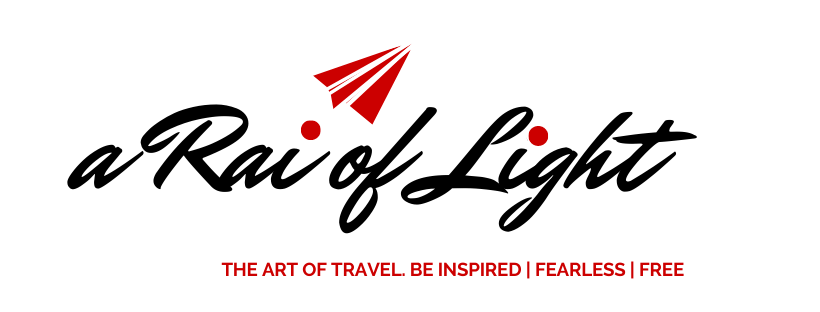
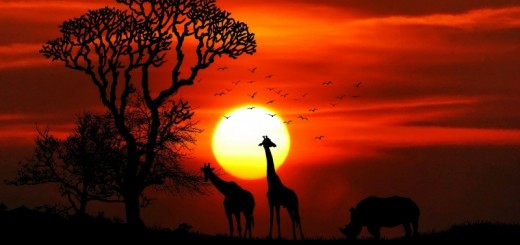


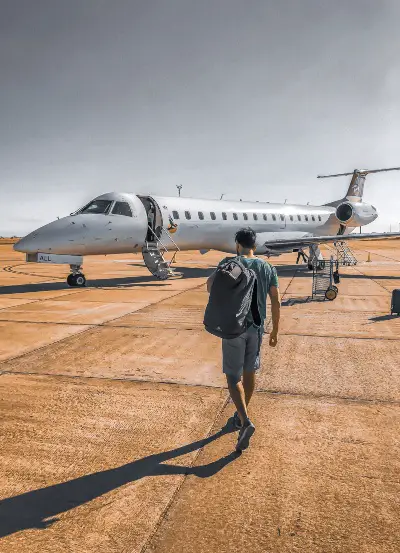 New Here?
New Here? 